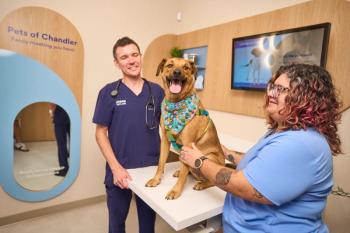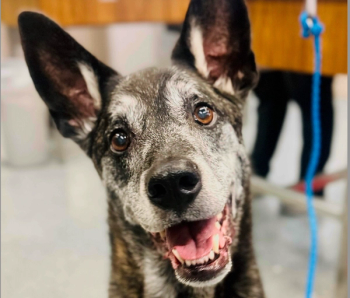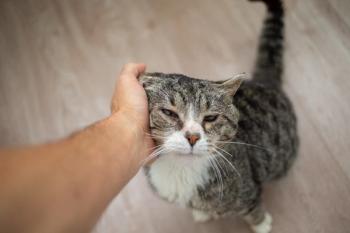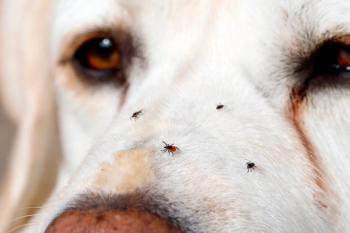
- dvm360 April 2024
- Volume 55
- Issue 4
- Pages: 13
The hardest job in a hospital (according to a veterinarian)
Receptionists juggle calls and clients’ questions, schedule appointments, and do so much more to keep a practice running smoothly
One of the first things animal lovers say to someone who works in the veterinary field, especially veterinarians, is “You have such a difficult job.” It’s true. Anyone working in this field has a difficult job. The veterinary assistant who helps hold a scared dog or cat (or other animal the practice sees) has a difficult job. The veterinary technician who has to monitor anesthesia, administer medications, place intravenous catheters, set up and take down surgery in a sterile fashion—the list is endless— has a tough job. The veterinarian who is supposed to find out what is wrong with a pet when it can’t tell them why they feel more lethargic than usual has a difficult task to constantly and consistently complete. The practice manager who keeps the clinic running daily as well as talking to owners who are upset with what happened (or didn’t happen) with their pets has a demanding job. However, in my opinion, the most difficult job in the clinic by a landslide (often feeling more like a mudslide) is the receptionist.
When a pet owner calls the clinic, they don’t speak to the assistant, doctor, or technician (unless the clinic is extremely busy)—they talk to the receptionist at the front desk. Questions range from how to schedule international health certificate exams, to euthanasia, to follow-up blood work on very specific and sometimes esoteric cases. The receptionist listens to the owner, often having to calm them down so they can get the relevant information. Sometimes they need to get through the yelling, accusations, or demands in a kind yet stern way. Then they have to decide whether to ask a question of the veterinarian or technician who is usually busy or running behind. This can induce some anxiety. A more experienced receptionist will then ask potential follow-up questions to anticipate the questions the owner will ask.
After getting all of the information, the receptionist will go back to the phone and discuss the answers and recommendations with the owner. Sometimes that is sufficient, and the conversation ends. Other times, more dialogue ensues, and the receptionist needs to find a way to end the conversation while giving the correct answer kindly yet firmly. Now this is what happens on a smooth day; however, anyone in any health care capacity can quickly counter with the point that a smooth day never happens. On a typical day, the receptionist has to repeat that process with at least 2 or 3 clients on hold as well as check in patients who are coming into the clinic, get medications that are being picked up, and answer questions from other staff members.
The receptionist is one of the most vital roles from an administrative perspective. For instance, when people move and switch veterinary clinics, records need to be obtained. The receptionist calls a pet’s previous clinic, uploads records sent in by owners, or reminds owners to send in those records. The receptionist also updates the vaccine information so it’s reflected in the pet’s new record at the clinic. That may not sound like much if it’s just 1 client’s records, but keep in mind it’s usually many records in a single day, and this is on top of answering questions that owners have in person or via phone as well as checking them in.
A final note is that the receptionist is also in charge of scheduling appointments. They have to make sure that the surgery patients are told the correct instructions for what day and time to arrive. They have to inform new clients of hospital policies, and they have to make sure that clients and patients are scheduled correctly based on how they act when in the clinic or what issue is occurring. If a doctor is out sick, they need to quickly call every owner whose pet is scheduled to come in that day and apologize while rescheduling their appointments. Again, this is at the same time people are coming in to pick up medications or calling to ask questions.
For all these reasons and more, the receptionist at a veterinary clinic has the most difficult job. They are the first face that clients see when entering the clinic, the first voice they hear when calling, and the liaison between the back and the front of the hospital. So be extra kind to the receptionist: They can be your best friend and fight extra hard to get those questions answered, the sick pet scheduled, and any accidents the clinic made quickly addressed.
Harris Fitzgerel, DVM, BS, is a small animal general practice veterinarian who works at Clarendon Animal Care in Arlington, VA. He graduated from Cummings School of Veterinary Medicine at Tufts University and completed a one year rotating internship at Friendship Hospital for Animals in Washington, DC. He lives with his wife and cat in Northern Virginia.
Articles in this issue
over 1 year ago
Keeping up with our Kansas City keynote speakersover 1 year ago
There’s so much in store for the graduating class of 2024over 1 year ago
Dirofilaria immitis: The monster then and nowover 1 year ago
Stay competitive—and ethicalover 1 year ago
A new name for “drop-off”over 1 year ago
Striving for equity in veterinary medicineover 1 year ago
A multimodal approach to antimicrobial stewardshipNewsletter
From exam room tips to practice management insights, get trusted veterinary news delivered straight to your inbox—subscribe to dvm360.






